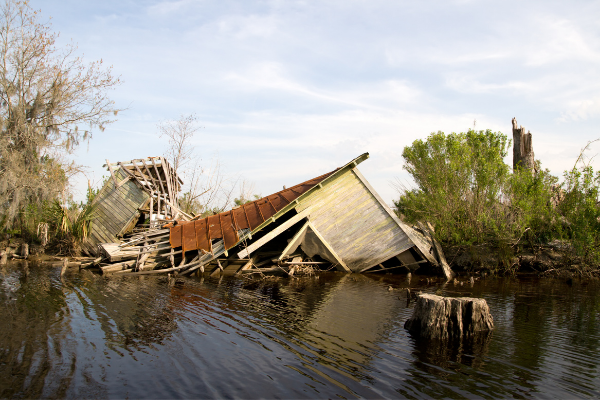
Tanzania Could Help America in The Wake of Hurricane Katrina
- Category: Governance
- Date 11-09-2005
- 875 views
For two weeks now, there has been widespread outcry about the damage which hurricane Katrina inflicted on America’s city of New Orleans. As I write, however, I am not aware of the material contributions this nation of compassionate wa-Bongo has made to the US to mitigate the brunt of the recent tempest in a disaster area, the size of Great Britain.
Yet, it is now common knowledge that America, the world’s biggest economy, last weekend appealed for international aid, requesting blankets, first aid kits, water and food. This call prompted many countries to send food and other supplies to the victims in the city which analysts say could take years to recover and warn of grim days ahead.
Reports show that New Orleans is still a city of countless human dramas and tragedy, where bodies floated uncollected in the water. Many children died in the storm, watched their parents dying or were abandoned by their fleeing parents. The infirm, the sick, and the old were largely left behind.
Thousands of able-bodied people were trapped - some of them waiting to be rescued from rooftops of houses surrounded by water. In almost every street were helpless people with so many needs. While rescuers were said to be pushing aside the dead bodies floating in the water, to reach survivors, initial predictions disclosed that the death toll could reach 10,000.
Anger has been widespread over lack of urgent delivery of aid to the desperate suffering people by the federal government. However, their government has so far effected what has been described as the largest airlift operation in US history, amidst scenes of violence, including rapes and murders at the shelters.
Many “big” countries have hurried to help; such as Germany, the UK, France, Holland, Greece, Sweden and Japan. Even tiny Luxembourg offered 1,000 camp beds and 2,000 blankets and provided equipment to restore mobile phone networks. Romania, which has suffered devastating floods twice this year, has provided two medical teams.
Remarkable however is the graveyard silence from Africa. Is it impossible for example for Tanzania to give a helping hand to America in its hour of need? They may not really expect much from us, but America’s call for European and international help shows that even superpowers need friends who can help.
There is no person or community so rich that they have nothing to receive; likewise, no person or community is so poor that they have nothing to give. For one, Tanzania would have probably dispatched a consignment of a thousand sacks of ugali, if nothing else, to show that Bongo can be useful though inadequate. This is solidarity.
Solidarity does not stop at mere verbal expressions of sympathy; it extends as far as being able to part with the little one can afford to assist a disadvantaged neighbour. Hurricane Katrina has in fact undressed America to reveal the presence of the poor and helpless people who could not, on their own, flee from the tornado to safety.
On the other hand, Africa is always idly displaying a begging basket with an outstretched hand, in false belief that such a rich nation has everything in excess and no problems of its own.
Now is an opportunity for us to give too. Giving does not arise from having things in surplus but from a people’s dignity and charity to share with others in all circumstances. Solidarity should be both in word and action.
All of us have received gifts we do not really need, from friends and relatives including our dependants, and we accept them more for what they represent than what direct need they might actually satisfy. It is the spirit and symbolism that matters. The fact is that we can help America, not because we have enough, but basically because it is good.
It is time to shutoff the beggar mentality, which African governments vehemently preach against but fail to practice. Moreover, Katrina hit most at our close relatives: those who remained behind were not merely overwhelmingly poor but incidentally black. Their ancestors were hauled out of their African comfort and roots, into America where they continue to bear the brunt of misfortune.
We must not behave like poor villagers who cannot push a rich man’s car out of the mud, thinking that whenever he helps them when in need, it is because he is wealthy, when essentially, they have been conditioned to view themselves as perpetual recipients of help.
By Venansio Ahabwe
Source: Peering Eye, Sunday Citizen
